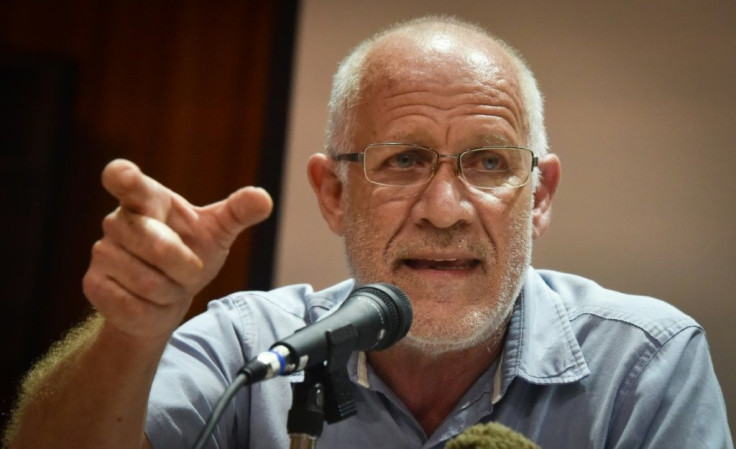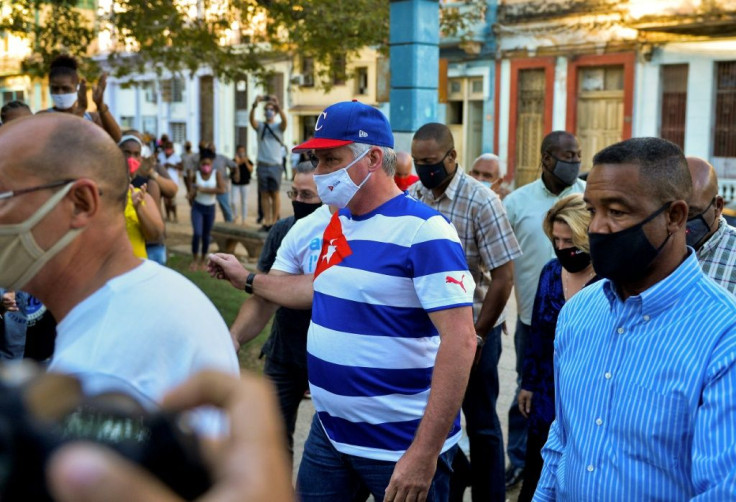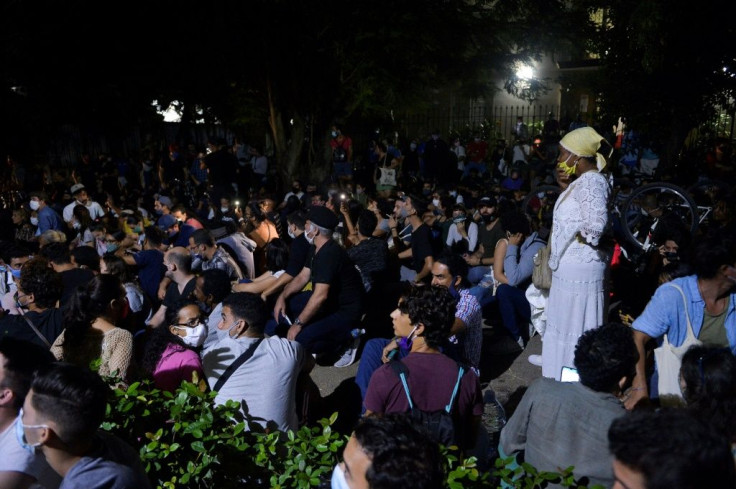Cuba Talks On Freedom Of Expression Break Down After Rare Protest
Dialogue over freedom of expression between Cuba's government and artists who organized a rare protest last week hit an impasse Friday as communist authorities accused some of them of being financed by the United States.
Cuba's Culture Ministry said it would not meet the artist collective's delegates, accusing them of receiving "funding, logistical and propaganda support from the US government and its officials."
The group of artists and intellectuals which has begun calling itself "27N" -- for November 27, the date of the protest -- called for further dialogue, saying they were "not enemies" but Cubans seeking a better country.

Some of them said they had been prevented from leaving their homes by a large police presence and had received threats by telephone.
Officials initially agreed to a dialogue over the artists' demands after the rare protest by around 300 members or supporters of the group outside its headquarters in Havana last weekend, spurred on by social media appeals.
A delegation of 30 demonstrators had been able to meet in the middle of the night after hours of protesting with the vice-minister of culture to present their demands to him related to freedom of expression.

Culture Ministry officials agreed to a dialogue with protesters' representatives, and the unprecedented discussions were expected to get underway this week with Culture Minister Alpidio Alonso.
However, the communist authorities hardened their tone, denouncing a US conspiracy.
The ministry said in its statement that it took exception to an "insolent letter" received on Thursday, which sought to "impose unilaterally who should participate in dialogue, with whom it agrees to dialogue, and on what."

The group had demanded President Miguel Diaz-Canel participate in the talks.
Diaz-Canel, the first Cuban leader of the post-Castro era -- too young to have participated in the 1959 revolution led by Fidel Castro and his brother Raul -- has accused the collective of being behind "an unconventional war strategy to try to overthrow the revolution."

He made the comments at a "defense of the revolution" event two days after their protest.
The November 27 demonstration outside the Culture Ministry building followed the expulsion by police the previous day of members of a previously little known artists' collective from their premises in the historic center of Havana.
Members of the San Isidro Movement had been protesting for 10 days, with six of them on hunger strike, and their movement had gained significant attention.
The ministry said it remained open to dialogue with a section of the artists' community.
"For the young people and all the artists who met in front of the ministry on 27 November, who have not compromised their work with the enemies of the Cuban nation, the opportunities for dialogue remain open," the statement said.
"But we cannot get along with the mercenaries."
In a Facebook post, the 27N group said "we demand the right to have rights."
"We are not enemies, but Cubans who think differently and we dream of a better Cuba to pass on to our children, altogether and for the good of everyone."
Juan Pin Vilar, a filmmaker who was part of the delegation that initially met culture ministry officials, said on Facebook he regretted the dialogue had been blocked and that those who protested were not part of any political agenda.
In recent days, Cuban state media have spoken of what they called the "San Isidro farce" while reporting on supposed US-financed destabilization efforts, such as the derailment of a freight train in 2019.
On the day after the protest, the foreign ministry summoned the US Charge d'Affaires Timothy Zuniga-Brown, accusing him of "blatant and provocative interference".
Tensions have been high since US President Donald Trump took office in 2017, with the White House applying sanctions as it sought to undo the rapprochement between the two nations under predecessor Barack Obama.
© Copyright AFP 2024. All rights reserved.





















